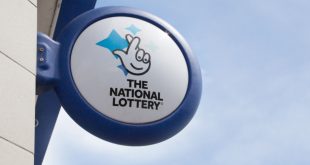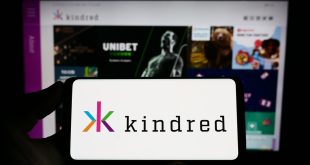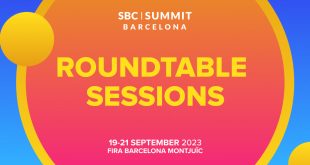
GAMING IN HOLLAND CONFERENCE: DAY 1
With 225 attendees from 22 countries, the Gaming in Holland Conference 2014 was the biggest edition yet and the first edition to sell out completely. Speakers and visitors alike look back on a successful conference: a must-visit event now that iGaming regulation is drawing so near in The Netherlands.
The conference kicked off on Monday with visitors arriving at the monumental Dome Church right in the heart of historic Amsterdam. Lunch presented the first of many networking opportunities, with old friends meeting each other and new contacts being made around the buffet. It’s not every day that several of the highest-profile people in the gaming industry are so easily accessible.
Dr. Joerg Hoffman, president of IMGL opened the afternoon program with a short speech in which he stressed: “Legislation always follows technology”. Those words would prove to be a common theme running through all the sessions.
Henrik Tjärnström, CEO of Unibet, gave the keynote speech in which he warned Dutch legislators not to become too greedy. Mr Tjärnström believes that for regulation to be successful, the ambition must be to channel at least 95% of Dutch players to local online licensees. However, with the currently proposed tax rate of 20%, channeling would reach a mere 70% in 2015-2018. Some 400,000 players would then continue to play in the .com-market without any protection from Dutch law. “Is it acceptable to leave 400,000 Dutch citizens outside? Why are ambition levels so low?”
Mr Tjärnström proposed a tax rate of 10%, which would lead to 95% channeling. Tax revenues would be somewhat lower, but higher contributions to sports would more than compensate for that loss, he claims. “10% tax would be a win-win situation for everyone.” The CEO of Unibet believes there’s no alternative: “We have to do this, unless we want to lock-up all Dutch citizens and the whole internet.”
The keynote speech was followed by several sessions on regulation. Marja Appelman, director of the Netherlands Gaming Authority KSA, used a controversial metaphor for the regulation of the Dutch iGaming market: “Some 150 years ago, the water in Amsterdam’s canals smelled horrible; the canals were really dirty. Then the city decided to implement regulation and it worked. The city’s canals became clean and the water became fresh. The same thing is going to happen in the Dutch gaming market and I’m looking forward to the fresh and clean water.” The KSA expects some 50 to 80 license applications and still aims for iGaming regulation to start on the first day of 2015. The organization is already developing application forms and procedures. Gaming lawyer Justin Franssen is much less optimistic: “I tell my clients that we will not see regulation before Q3 or Q4 of 2015. And I expect a lower number of applications, although it all depends on the tax rate.”
The subsequent debate on the Dutch lottery market became quite heated, as representatives from the incumbents and potential newcomers differed widely in their opinions. Sigrid van Aken, executive board member of the Dutch Charity Lotteries is not convinced that opening the lottery market is a good idea. “As far as I know, no other country has an open and fully transparent lottery market. And that probably has its reasons.” She added: “The Netherlands wants to make a show of virtue, but we have to realize that if we go ahead with this experiment, foreign operators will come here, but Dutch operators will not be able to go abroad. That’s not a level playing field.” Van Aken thinks Dutch charities may become the victims of liberalization.
Dr Hans Cornehl, CEO of Tipp24, thinks there’s no reason to be afraid. “We contribute to charity in every country that we operate in and are already investigating the charity landscape in The Netherlands. What does it matter if charities receive their contributions from a Dutch operator or an operator with its roots in Germany or the UK?” When asked if Tipp24 has any plans to organize an offline lottery in The Netherlands, Dr Cornehl added: “We’ll do anything that’s required in order to operate in a certain country.”
Jasper Versteege, founder of internet lottery Winner Takes All, feels that the whole issue would be solved by rules that compel lotteries in The Netherlands to distribute a proportion of their Dutch revenues to Dutch charity only: “The technology is there.” Van Aken disagrees: “Legally, that’s impossible.” Versteege rebutted: “But that’s why where here today, to talk about changing the law!”
The day ended with more networking in an informal setting: the terrace of a Spanish restaurant, with Holland-Chile on a big screen. Over drinks and dinner, we saw attendants and speakers trading business cards and of course exchanging lots of gaming gossip and business rumors.
________________________________-
GAMING IN HOLLAND CONFERENCE: DAY 2
The second day of the conference started off with sessions on sports betting, technical standards and responsible gaming. This was followed by lunch, where many attendees grabbed their chance and got to know one or several of the speakers. After all, this was a rare opportunity to chat with CEO’s and other leaders in the gaming industry.
Johan Styren, CEO of online casino LeoVegas, gave a gripping presentation on mobile gaming. His casino is one of the front runners in mobile developments: LeoVegas receives over € 40 million in annual deposits on mobile. Mr Styren shared some of the secrets for optimizing mobile conversion. “3 out of 4 of our players come in via mobile and these players are more loyal than players who come in via the web.”
Another highlight on this day was the group discussion on the top 10 requirements for a successful iGaming operation in The Netherlands, led by Endemol’s COO Jurian van der Meer. Playtech’s Steve Schrier stressed that newcomers shouldn’t try to reinvent the wheel: “I’ve seen many land-based operators who think they can just build a website or mobile site themselves. And often, that doesn’t end well.” He gave advice on how to choose the right third parties and what questions to ask them before committing yourself.
Hervé Schlosser, CEO of Sportnco, elaborated on the do’s and don’ts of branding and explained why FDJ is only a minor player in sports betting and has quit offering poker, while PMU is very successful in both verticals. All speakers agreed that media companies and land-based operators should not think that they can rely on their existing databases for acquisition. Schrier: “You burn through your database very quickly and then you’ll need a true acquisition strategy.”
Then the speakers debated whether or not media companies could make good gaming operators. Netplay’s CEO Charles Butler isn’t so sure. “In the UK for example, ITV is not an operator itself. They do work with all of the top 10 operators, but they don’t want the associated risk. And they certainly do not want to be called a gaming company in the newspapers.” Consultant Jasper Hoekert added: “Focus on being a very good media company, if that’s your core competence. There are great opportunities for partnerships with gaming operators, but don’t become an operator yourself.”
In his presentation on social gaming, Raf Keustermans, founder of Plumbee, gave his analysis of the difference between social and real money players. He also gave examples of how social casino games can be used as an acquisition tool and a way to boost real money gaming revenue. Gaming lawyer Alan Littler then led an excellent panel discussion on competition law and its impact on the gaming sector.
The conference concluded with a session on bingo. Phil Cronin, founder of Tombola, and Marin Muyser, MD of Bingocams, discussed the opportunities for online bingo operators in a regulated Dutch market. Their biggest concern is legislation. Muyser: “We have worked closely with the government to explain the dynamics of bingo.” But as it stands, bingo will not be regulated by the new gaming law. Chairperson Aideen Shortt hinted at a solution: “Surely there are ways to disguise bingo as an ordinary casino game, to circumvent a possible ban.” But both Cronin and Muyser say they are confident that the Dutch legislators will see the light and bingo will be regulated after all.
Willem van Oort, founder of Gaming in Holland, looks back on a great event and promises to keep the spirit of the conference alive throughout the year on Linkedin: “Gaming in Holland will keep you posted with News, Information and Events. Please join our Group on Linkedin too!”
_______________________
Willem van Oort – Founder of Gaming in Holland Conference









